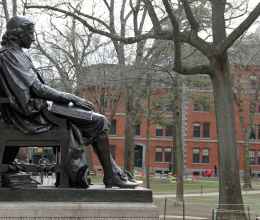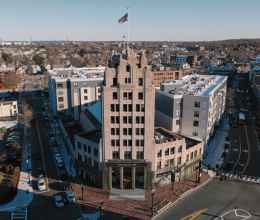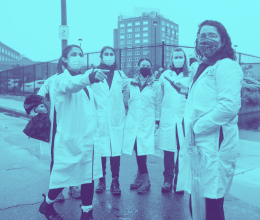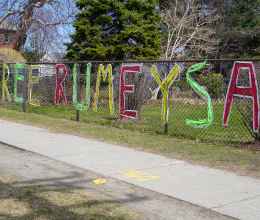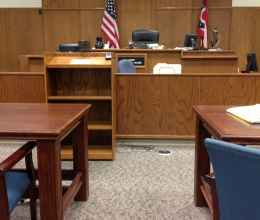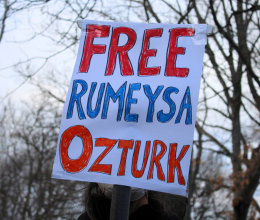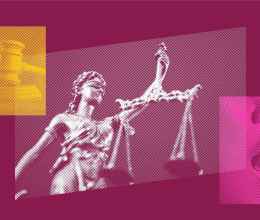
Norfolk Superior Court today granted a preliminary injunction blocking the planned installation of two large statues of Catholic saints outside the entrance of the new public safety headquarters in Quincy. The ruling ensures that the statues of St. Michael and St. Florian will not be installed while the case proceeds. The court also denied the City of Quincy’s motion to dismiss the lawsuit.
The lawsuit was brought in May by a multifaith group of Quincy residents, who argue that the plan violates the separation of church and state, as codified in the Massachusetts Constitution. The plaintiffs are represented by the American Civil Liberties Union of Massachusetts, the ACLU, Americans United for Separation of Church and State, the Freedom From Religion Foundation, and Cloherty & Steinberg LLP.
“My Christian faith is at the core of my life — and the City’s plan to install religious statues at the entrance to a government building goes against that faith,” said Conevery Bolton Valencius, one of the plaintiffs in this case. “As residents of Quincy, we should not have to walk under such looming religious imagery to seek help from public safety officers or city services. I go to church because it is my choice to freely practice my religion, but having to walk beneath these statues to enter a government building removes that choice. The City should not be seen to favor religious believers — much less adherents to a particular faith — above others. I am grateful to the court for recognizing this essential principle.”
In its ruling, the court emphasized that "[a] core function of the new public safety building is to facilitate and promote public access to law enforcement," and that "[v]ictims and witnesses entering such a building often must overcome emotional and psychological hurdles, and intimidation to report crimes and seek police assistance" including "the question of whether the police will treat their claims with the gravity warranted and treat them equally as any other individual, regardless of religious beliefs." As a result, it concluded "the Complaint raises colorable concerns that members of the community not adherent to Catholicism or Christian teaching who pass beneath the two statues to report a crime may reasonably question whether they will be treated equally."
The lawsuit argues that the placement on government property of the proposed religious statues violates Article 3 of the Massachusetts Declaration of Rights by imposing religious imagery and symbols upon all who work in, visit, or pass by the public safety building; by conveying the message that Quincy is a Catholic community and that non-Catholics do not belong and are less valued; and by excessively entangling the City with matters of religion.
“This ruling affirms the bedrock principle that our government cannot favor one religion above others, or religious beliefs over non-religious beliefs,” said Rachel Davidson, staff attorney at the ACLU of Massachusetts. “We are grateful to the court for acknowledging the immediate harm that the installation of these statues would cause and for ensuring that Quincy residents can continue to make their case for the proper separation of church and state, as the Massachusetts Constitution requires.”
“We welcome this decision to preserve religious liberty,” said Daniel Mach, director of the ACLU Program on Freedom of Religion and Belief. “The government simply has no business playing favorites with faith.”
“This is a win for religious freedom and church-state separation. Police and fire services are for all Quincy residents, regardless of their religious beliefs,” said Rachel Laser, president and CEO of Americans United. “By trying to install large religious statues in front of the government building dedicated to public safety, Mayor Koch and the City are violating the constitutional promise of church-state separation and sending a message to all who rely on city services that one faith is favored over all others.”
“We commend this legal development. Massachusetts citizens are free to practice their personal religious views by placing statues of saints or other religious iconography on private property,” said Annie Laurie Gaylor, co-president of the Freedom From Religion Foundation. “But such religious iconography emphatically does not belong on government buildings where all must feel welcome, and which represents and is paid for by residents of all religious persuasions — or none at all.”
Read the ruling here.
Read more about the case here.
